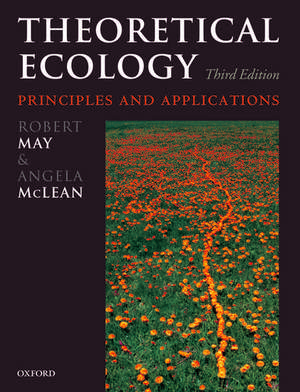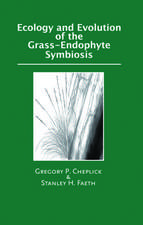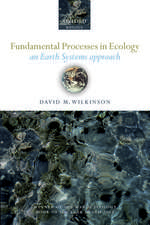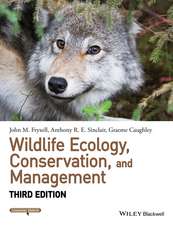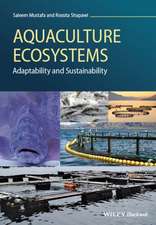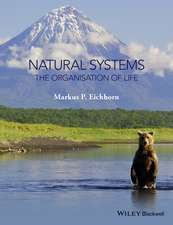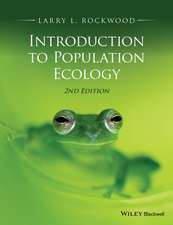Theoretical Ecology: Principles and Applications
Editat de Robert May, Angela R. McLeanen Limba Engleză Paperback – 14 feb 2007
Preț: 493.58 lei
Preț vechi: 561.63 lei
-12% Nou
Puncte Express: 740
Preț estimativ în valută:
94.44€ • 98.87$ • 78.15£
94.44€ • 98.87$ • 78.15£
Carte tipărită la comandă
Livrare economică 27 martie-02 aprilie
Preluare comenzi: 021 569.72.76
Specificații
ISBN-13: 9780199209996
ISBN-10: 0199209995
Pagini: 267
Ilustrații: numerous line drawings, tables, halftones and mathematical examples
Dimensiuni: 188 x 245 x 16 mm
Greutate: 0.59 kg
Ediția:33
Editura: OUP OXFORD
Colecția OUP Oxford
Locul publicării:Oxford, United Kingdom
ISBN-10: 0199209995
Pagini: 267
Ilustrații: numerous line drawings, tables, halftones and mathematical examples
Dimensiuni: 188 x 245 x 16 mm
Greutate: 0.59 kg
Ediția:33
Editura: OUP OXFORD
Colecția OUP Oxford
Locul publicării:Oxford, United Kingdom
Recenzii
I would recommend this book to those seeking an overview of modern theoretical ecology and those seeking an easy access point to any one of the main topics covered. British Ecological Society bulletin 2008 39:1
Notă biografică
Robert May is Professor of Zoology at the University of Oxford and Imperial College London. His research, first at Princeton University and since 1988 at Oxford University, has dealt with the ways in which plant and animal populations - either singly or in interacting communities - change over time, especially in response to natural or human-created disturbance. His work on chaos, on how infectious diseases can influence the numerical abundance or geographical distribution of populations (including applications to humans and HIV/AIDS), on estimating species' numbers and rates of extinction, and more generally on conservation biology have been recognised by several major International Prizes (Crafoord, Balzan, Blue Planet). He has been Chief Scientific Adviser to the UK Government (1995-2000), President of the Royal Society (2000-2005), and in 2001 was one of the first appointees to the UK Upper House by the Independent House of Lords Appointments Commission.Angela McLean is Professor of Mathematical Biology in the Department of Zoology and Director of the Institute for Emergent Infections of Humans in the James Martin 21st Century School. Her research interests lie in the use of mathematical models to aid our understanding of the evolution and spread of infectious agents. This encompasses modelling of the dynamics of infections and immune responses within individual hosts as well as models of the spread of infections from one host to another
